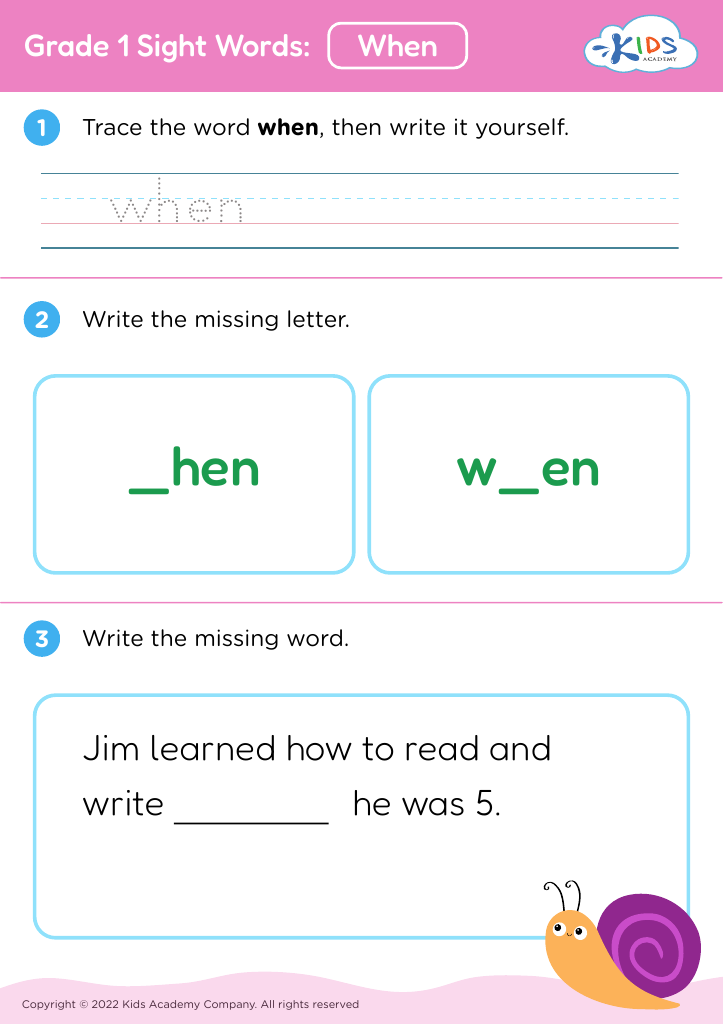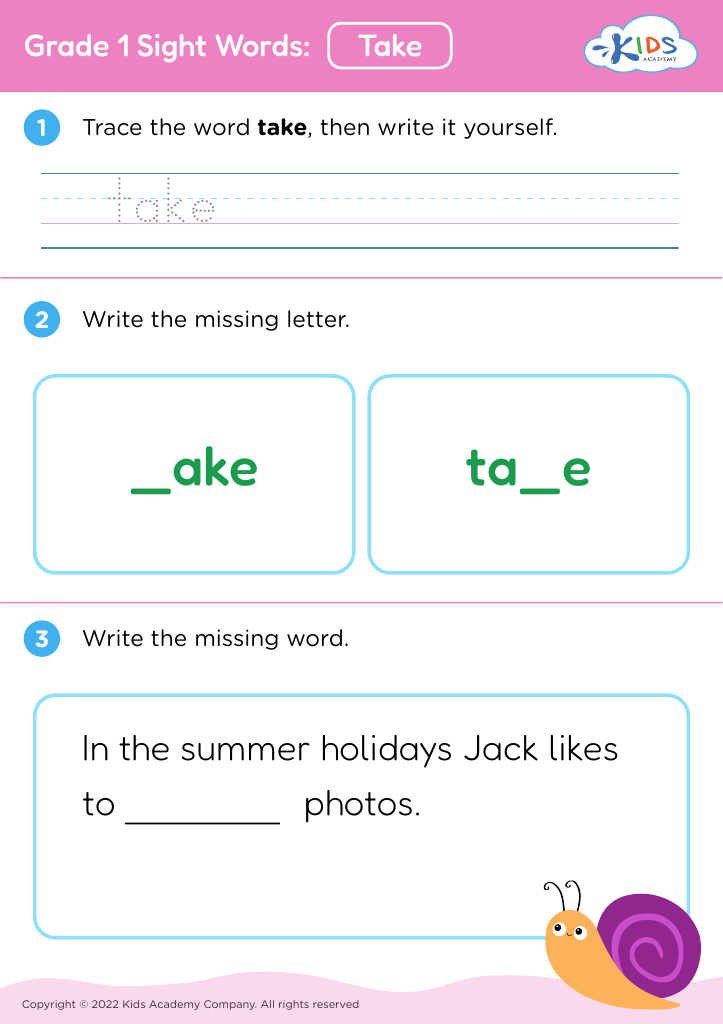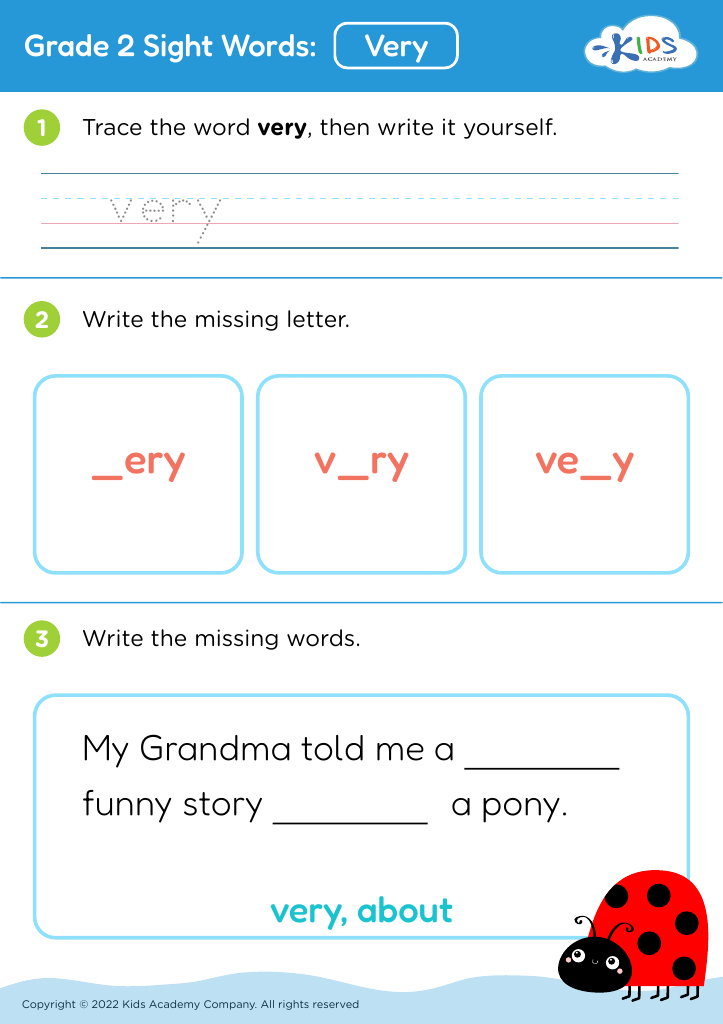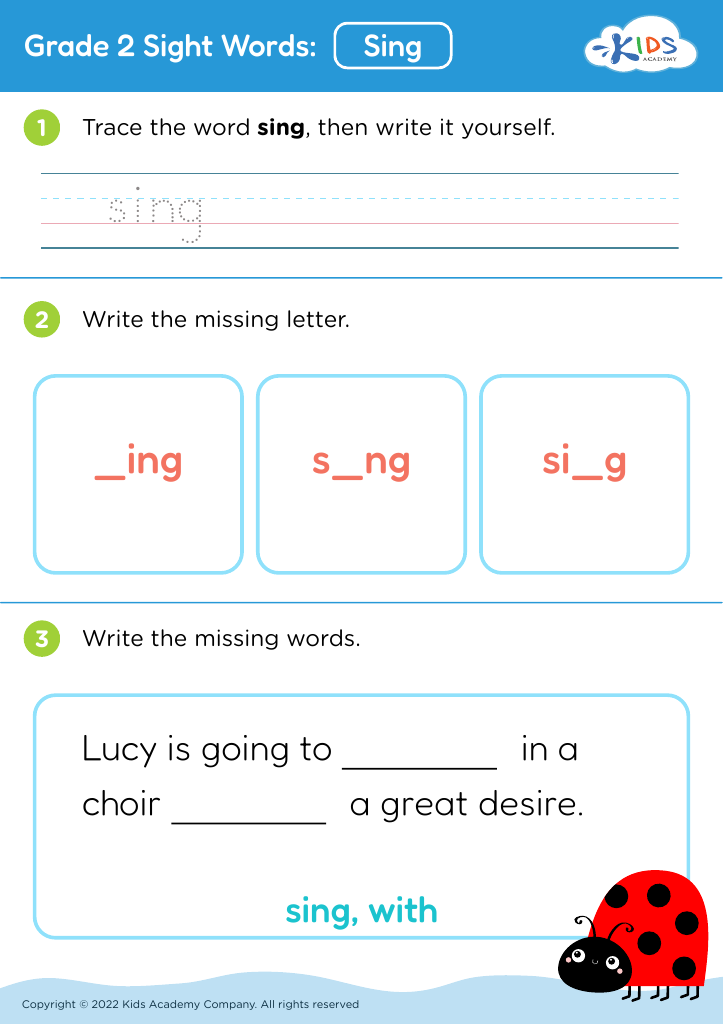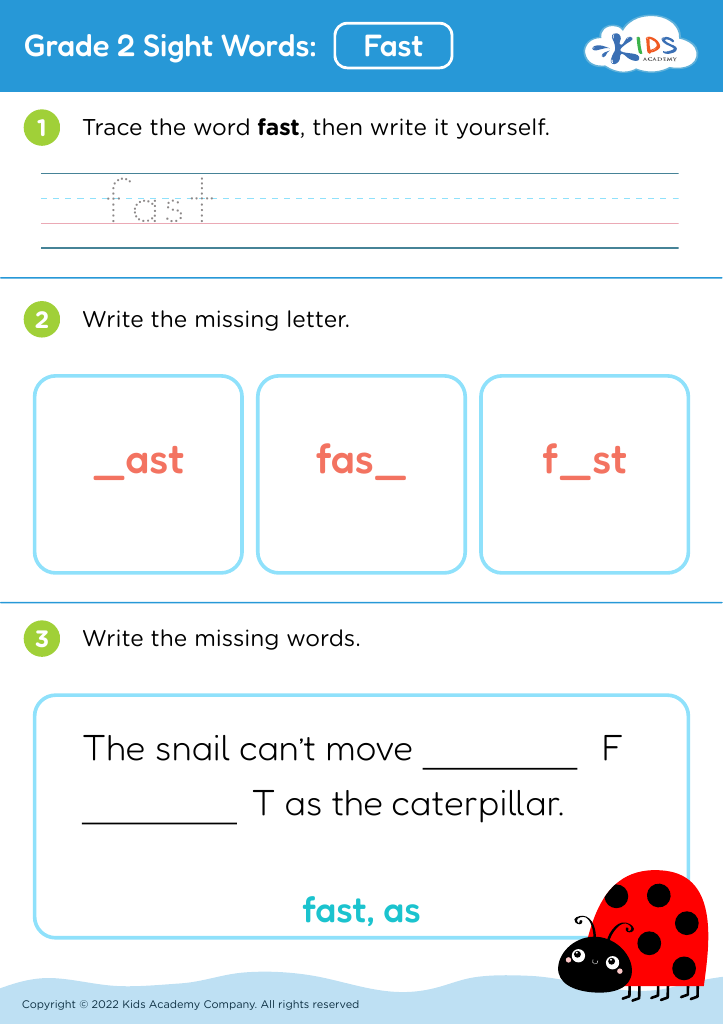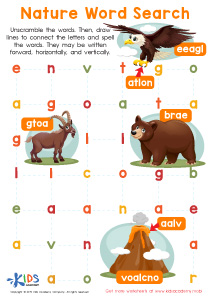Addition Practice Sight Words Worksheets for 7-Year-Olds
5 filtered results
-
From - To
Enhance your 7-year-old's learning experience with our engaging Addition Practice Sight Words Worksheets! These printable resources combine essential sight word recognition with fun addition exercises, promoting both literacy and math skills. Each worksheet is designed to reinforce sight word understanding while challenging young minds with simple addition problems. Perfect for classroom settings or at-home learning, these worksheets encourage independent practice and build confidence in young learners. With colorful illustrations and varied activities, your child will stay motivated and excited about learning. Download our addition practice worksheets today and support your child's educational journey in a fun and interactive way!
Addition practice and sight words are crucial components of literacy and numeracy development for 7-year-olds, forming foundational skills that support lifelong learning. For parents and teachers, prioritizing these areas can yield significant educational benefits.
Firstly, addition practice develops a child's ability to quickly and accurately make mathematical calculations, which are essential for more advanced math concepts later on. Mastery of addition helps build confidence in problem-solving and critical thinking skills, enabling the child to tackle increasingly complex equations with ease.
Simultaneously, sight words enhance reading fluency and comprehension. At this age, children are transitioning from learning to read to reading to learn, and familiarity with common sight words allows them to dedicate more cognitive resources to understanding the text instead of decoding words. This transition is vital for academic success across all subjects, as proficient readers are better equipped to absorb information.
Moreover, these practices cultivate persistence and discipline in young learners. Games and fun activities that incorporate addition and sight words can promote a love for learning and encourage positive parent-child interactions. Ultimately, fostering these skills at an early age not only prepares children for future academic challenges but also contributes to their overall cognitive development and self-esteem.
